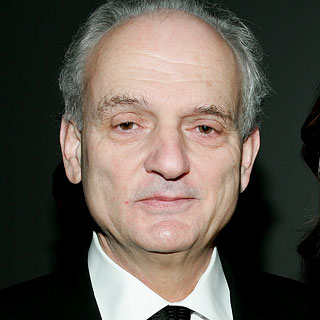
So, I have let my summer relaxation get out of hand and not been by here for awhile. But, I was stirred back into action by my outrage over
this Simpsons Top 10 list over at
Vanity Fair. While I highly recommend their excellent
oral history of the show, timed to coincide with the release of the movie on July 27, the accompanying Top 10 needs correcting. While I agree with several of their choices, they inexplicably left many other classics off and included several duds. So, here is my Top 10. Thanks to
The Simpsons Archive for the episode details.
10)
Behind the Laughter (Season 11, May 21, 2000)
The token late-seasons entry. I include this episode because it shows how the show, even in its declining years, could still be daring and experimental. Styled as a
Behind the Music episode detailing the off-stage life of the Simpson family, it combines two of the shows great strengths: pop genre parody and self-deprecating meta-humor.
9)
Treehouse of Horror V (Season 6, October 30, 1994)
The crown jewel of the famous Halloween specials, featuring the
Shining parody that gave Homer one of his greatest lines of all time ("No TV and no beer make Homer something something" Marge: "Go crazy?" Homer: "Don't mind if I do.") You also get Homer's time machine toaster and Principal Skinner going all
Soylent Green.
8)
I Love Lisa (Season 4, February 11, 1993)
Lisa gives a pity Valentine's Day card to dim-witted Ralph Wiggum and then must figure out how to let him down gently. The show's inspired silliness and ear for comedy can be heard in Ralph's reading of the card ("You choo-choo choose me?").
7)
You Only Move Twice (Season 8, November 3, 1996)
Homer gets a new job working for a boss who is a cross between Steve Jobs and Dr. No. He moves the family to a prefab community that is stultifying in its cutting-edge appeal. This episode is even funnier in today's post-iPod, Starbucks-besotted world than it was ten years ago.
6)
Cape Feare (Season 5, October 7, 1993)
The first one
VF actually got right, and it's easy to see why. It is hands down the best Sideshow Bob episode, and that is saying something, as several others could easily make the shortlist (especially
Sideshow Bob Roberts and
Brother From Another Series). But this one takes the cake with its
Cape Fear parody, Homer trying to learn his new name, Bob performing
H.M.S Pinafore and, of course, the reinvention of the rake gag.
5)
22 Short Films About Springfield (Season 7, April 14, 1996)
The show's phenomenal success and animated medium have given it the creative freedom to attempt things no other show would do, such as do an entire episode with no narrative. A collection of vignettes about various Springfield denizens, this episode gets points for creativity and daring, but it makes the top 5 because it gives so many of the characters some of their funniest and most memorable moments. What puts it over the top is Principal Skinner and Superintendent Chalmers, with Skinner trying to pass off Krusty Burgers as homemade "steamed hams".
4)
Marge vs. the Monorail (Season 3, January 14, 1994)
The late Phil Hartman created two of my favorite characters, Troy McClure and Lionel Hutz, but this was his tour-de-force, as the
Music Man-esque monorail salesman Lyle Lanley. The monorail song remains the best of the show's many showstopping musical numbers and Leonard Nimoy is wonderfully strange in his cameo. Of the show's many satirical jabs at the cornerstones of American society, the most persistent and irreverent is the idea that democracy doesn't work, and this episode makes that point in the guise of that most American of art forms: the musical comedy.
3)
Homer Phobia (Season 8, February 16, 1997)
One of the signs of the show's late-season decline has been the increasing preachiness of its topical episodes. When the show was at its peak, they could take an issue like homophobia and make you feel bad for the homophobe. Added to that is John Waters, in what is possibly the best celebrity cameo ever. Where else can you visit a gay steel mill and see John Waters chasing away killer reindeer with a mechanical Santa Claus? All that and my favorite Homer quote of all time: "You know me Marge, I like my beer cold, my TV loud, and my homosexuals flaming."
2)
The Itchy & Scratchy & Poochie Show (Season 8, February 9, 1997)
Speaking of the show's decline, at least they declined in style. This episode, which marked the show surpassing
The Flintstones as the longest-running animated sitcom, is, naturally, about long-running shows in decline. To reinvent
Itchy & Scratchy, the network creates a new, desperately "cool" character voiced by Homer, while a new, desperately "cool" character named Roy moves in with the Simpsons. Poochie speaks not only to artists forced to take orders from no-nothing suits, but also to every young person who has ever been condescended to by Hollywood and corporate America.
1)
Much Apu About Nothing (Season 7, May 5, 1996)
Another episode that is even funnier and more relevant than when it first aired. The opening "Bear Patrol" sequence is the show's funniest and most true-to-life representation of the Springfield mob mentality. It is probably the height of the show's satiric brilliance. Amazingly, the rest of the episode keeps up this pace. Whenever I read about the current immigration debate, I always hear Chief Wiggum, preparing to enforce the town's tough new immigration policy: "First we round up your tired, then your poor, then your huddled masses yearning to breathe free".






